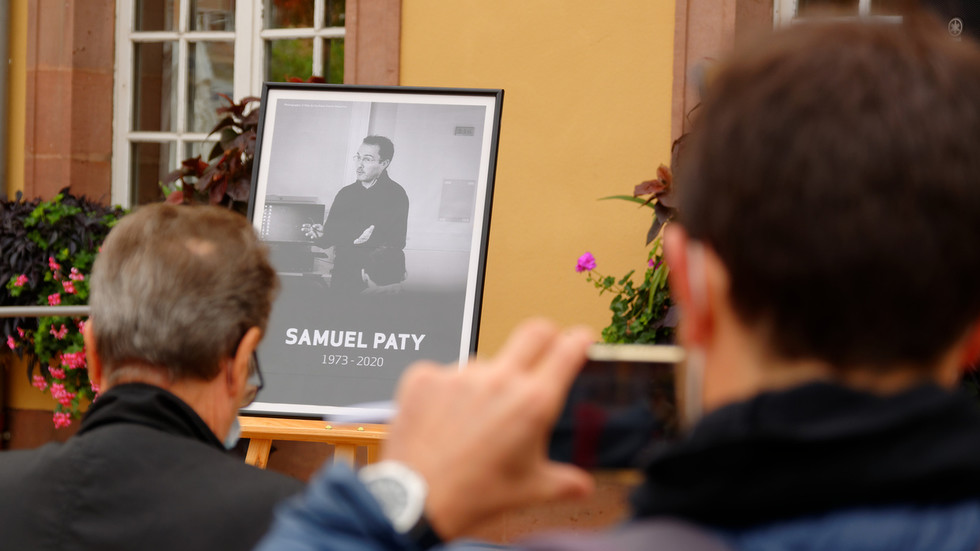Unmasking the Narrative: Are Jihadists Simply Disguised Russians?
The notion that jihadists may be acting as a front for Russian interests is a controversial and provocative claim that stirs up a heated debate in contemporary geopolitics. This narrative suggests that certain jihadist groups might not solely represent their stated religious or ideological motivations but may also serve as unwitting pawns in a larger geopolitical game orchestrated by Russia. Understanding the implications of this theory requires an examination of the motivations and strategies behind it, revealing a complex web of misinformation and political maneuvering.
Understanding the Jihadist Landscape
To unpack the idea that jihadists are merely disguised Russians, we first need to clarify what we mean by “jihadists.” Generally, jihadists refer to individuals or groups who advocate for violent jihad—often framed in terms of religious obligation. These groups, such as Al-Qaeda or ISIS, have distinctly articulated goals, including the establishment of Islamic governance and the global spread of their interpretation of Islam.
However, it’s essential to recognize that these groups often operate in a highly fragmented and politically charged environment. Various factions within jihadist movements are motivated by local grievances, historical contexts, and ideological commitments that may not align neatly with any external state’s interests, including Russia’s.
The Russian Interest in Middle Eastern Conflicts
Russia’s strategic interests in the Middle East, particularly in Syria, have been well documented. Since its intervention in the Syrian civil war in 2015, Russia has positioned itself as a key player, siding with the Assad regime and working to counterbalance U.S. influence in the region. Russia’s military presence and support for various groups have led some analysts to suggest that Moscow could have a vested interest in the chaos created by jihadist groups.
One could argue that creating or sustaining jihadist factions could serve Russia’s goals by:
- Disrupting Western Interests: By fueling instability, Russia can undermine the influence of Western powers in the region.
- Creating a Pretext for Intervention: The presence of jihadists could justify Russia’s military actions under the guise of combating terrorism.
- Exploiting Regional Tensions: Supporting or manipulating jihadist groups might allow Russia to play regional actors against each other, enhancing its leverage.
The Misinformation Web
While the strategic interests of Russia in the Middle East are evident, the claim that jihadists are simply disguised Russians often leans heavily into conspiracy theory territory. Proponents of this narrative may point to the following:
- Shared Objectives: Some argue that jihadists and Russian interests align when it comes to destabilizing Western-backed regimes.
- Use of Information Warfare: Russia is known for its information warfare capabilities, which could involve spreading narratives that blur the lines between jihadist groups and Russian state interests.
- Historical Precedents: Instances in the past where state actors have manipulated extremist groups for their agendas, such as the U.S. support for the Mujahideen in Afghanistan during the Soviet invasion.
However, these points often overlook the complex realities of jihadist motivations. While it’s possible for opportunistic alliances to form, the primary drivers of jihadist violence are rarely reducible to mere manipulation by state actors.
Political Manipulation and Propaganda
The narrative of jihadists as disguised Russians can serve various political ends. For instance, state actors might use this claim to:
- Justify Military Actions: By framing jihadists as Russian proxies, governments may seek public support for military interventions or increased defense spending.
- Shift Blame: This narrative can serve to deflect criticism from the failures of local governance and the consequences of foreign policy decisions.
- Polarize Public Opinion: By creating a clear “us versus them” dichotomy, political entities can rally support among their constituents.
Moreover, the spread of misinformation about the jihadist threat can create a climate of fear, which may be exploited by political leaders to consolidate power or justify authoritarian measures.
Challenging the Narrative
It’s crucial to challenge the oversimplified narrative that jihadists are merely disguised Russians. This perspective not only undermines the genuine grievances that fuel jihadist movements but also risks stigmatizing entire communities and fostering Islamophobia. The reality is more nuanced:
- Local Grievances Matter: Many jihadist groups arise from local frustrations, historical injustices, and socio-economic challenges that cannot be solely attributed to external manipulation.
- Diverse Motivations: Jihadist groups are not monolithic; they often differ significantly in their goals, ideologies, and methods of operation.
- Counterproductive Policies: Misunderstanding jihadist motivations can lead to counterproductive policies that exacerbate the very issues that fuel extremism.
Conclusion: A Complex Geopolitical Landscape
In conclusion, the provocative claim that jihadists may be acting as a front for Russian interests invites scrutiny and debate. While there are certainly strategic overlaps in the interests of jihadist groups and Russia, reducing jihadism to mere Russian puppetry simplifies a complex and multifaceted issue. The motivations driving jihadists are deeply rooted in local contexts, grievances, and ideologies. As we navigate this intricate geopolitical landscape, it is essential to approach such narratives with caution, ensuring that we do not conflate the actions of individuals and groups with the broader geopolitical games at play. Only then can we foster a more nuanced understanding of the challenges we face in combating extremism and promoting global stability.
See more BBC Express News

